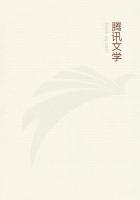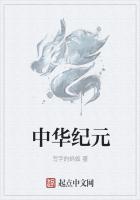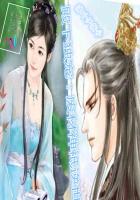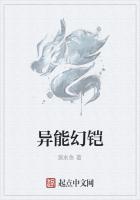Then for the first time on earth the bow was strung, and hundreds of flint-headed arrows found their mark in the bodies of the animals, while each time that the Boy Man swung his stone war-club, his enemies fell in countless numbers.
Finally the insects, the little people of the air, attacked him in a body, filling his eyes and ears, and tormenting him with their poisoned spears, so that he was in despair. He called for help upon his Elder Brother, who ordered him to strike the rocks with his stone war-club. As soon as he had done so, sparks of fire flew upon the dry grass of the prairie and it burst into flame.
A mighty smoke ascended, which drove away the teasing swarms of the insect people, while the flames terrified and scattered the others.
This was the first dividing of the trail between man and the animal people, and when the animals had sued for peace, the treaty provided that they must ever after furnish man with flesh for his food and skins for clothing, though not without effort and danger on his part. The little insects refused to make any concession, and have ever since been the tormentors of man; however, the birds of the air declared that they would punish them for their obstinacy, and this they continue to do unto this day.
Our people have always claimed that the stone arrows which are found so generally throughout the country are the ones that the first man used in his battle with the animals. It is not recorded in our traditions, much less is it within the memory of our old men, that we have ever made or used similar arrow-heads.
Some have tried to make use of them for shooting fish under water, but with little success, and they are absolutely useless with the Indian bow which was in use when America was discovered. It is possible that they were made by some pre-historic race who used much longer and stronger bows, and who were workers in stone, which our people were not. Their stone implements were merely natural boulders or flint chips, fitted with handles of raw-hide or wood, except the pipes, which were carved from a species of stone which is soft when first quarried, and therefore easily worked with the most primitive tools. Practically all the flint arrow-heads that we see in museums and elsewhere were picked up or ploughed up, while some have been dishonestly sold by trafficking Indians and others, embedded in trees and bones.
We had neither devil nor hell in our religion until the white man brought them to us, yet Unk-to-mee, the Spider, was doubtless akin to that old Serpent who tempted mother Eve. He is always characterized as tricky, treacherous, and at the same time affable and charming, being not without the gifts of wit, prophecy, and eloquence. He is an adroit magician, able to assume almost any form at will, and impervious to any amount of ridicule and insult.
Here we have, it appears, the elements of the story in Genesis; the primal Eden, the tempter in animal form, and the bringing of sorrow and death upon earth through the elemental sins of envy and jealousy.
The warning conveyed in the story of Unk-to-mee was ever used with success by Indian parents, and especially grandparents, in the instruction of their children.
Ish-na-e-cha-ge, on the other hand, was a demigod and mysterious teacher, whose function it was to initiate the first man into his tasks and pleasures here on earth.
After the battle with the animals, there followed a battle with the elements, which in some measure parallels the Old Testament story of the flood. In this case, the purpose seems to have been to destroy the wicked animal people, who were too many and too strong for the lone man.
The legend tells us that when fall came, the First-Born advised his younger brother to make for himself a warm tent of buffalo skins, and to store up much food. No sooner had he done this than it began to snow, and the snow fell steadily during many moons. The Little Boy Man made for himself snow-shoes, and was thus enabled to hunt easily, while the animals fled from him with difficulty. Finally wolves, foxes, and ravens came to his door to beg for food, and he helped them, but many of the fiercer wild animals died of cold and starvation.
One day, when the hungry ones appeared, the snow was higher than the tops of the teepee poles, but the Little Boy Man's fire kept a hole open and clear. Down this hole they peered, and lo! the man had rubbed ashes on his face by the advice of his Elder Brother, and they both lay silent and motionless on either side of the fire.

